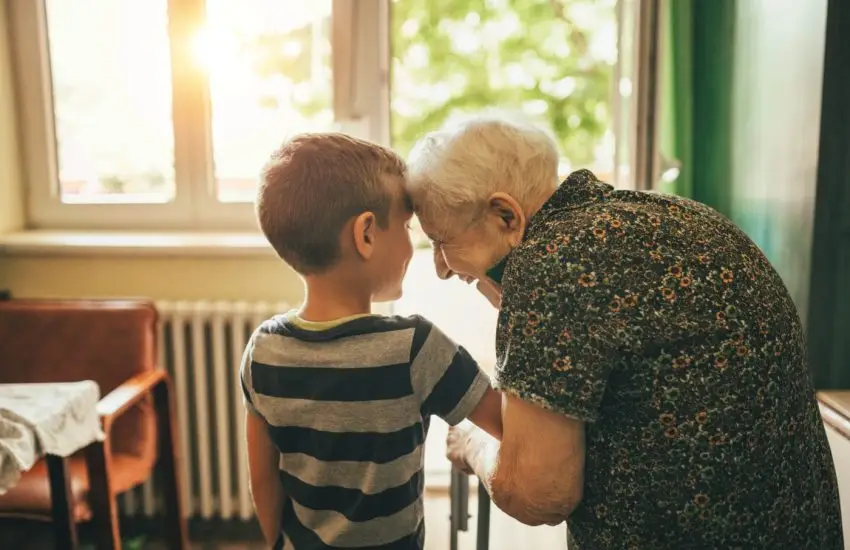Education
he Role of Government in Big Kid Education in New Jersey and Staten Island
Education plays a pivotal role in shaping the future of young individuals, and when it comes to “big kid” education—essentially, the education provided to children beyond the elementary level—the involvement of the government is critical. In both New Jersey and Staten Island, the government plays an essential role in providing access to quality education for students in middle school, high school, and beyond. This role spans various aspects such as funding, policy-making, curriculum development, and ensuring equal access to educational opportunities.
1. Funding and Resource Allocation
The government’s most direct influence in big kid education is through funding. In New Jersey, state funding for schools is provided through a complex formula that aims to ensure that all school districts, whether affluent or underfunded, receive adequate resources. This is especially important in New Jersey, where disparities in local property taxes can lead to inequities in funding. The state government provides funding to local school districts, ensuring that public schools can provide educational services that meet the needs of all students.
In Staten Island, which is part of New York City, the city’s budget allocates funds to public schools, supporting educational initiatives, teacher salaries, and facilities maintenance. The city is committed to addressing the educational needs of its diverse student population. Government funding supports the introduction of advanced courses, extracurricular activities, and initiatives aimed at improving overall student outcomes.
2. Policy-Making and Curriculum Development
Government policy plays a significant role in shaping what students learn in schools. Both New Jersey and Staten Island adhere to the standards set by their respective education departments. In New Jersey, the New Jersey Department of Education (NJDOE) develops state standards and curricula for middle and high school students. These guidelines are aligned with national education standards and are designed to ensure that students are well-prepared for college and careers.
Staten Island, as part of the New York City Department of Education (NYCDOE), follows educational policies set by the city. The NYCDOE emphasizes personalized learning, college and career readiness, and the introduction of innovative educational programs, including advanced placement (AP) courses, career and technical education (CTE), and arts programs. Both New Jersey and Staten Island are committed to providing students with the skills necessary to succeed in a rapidly changing world.
3. Access to Quality Education and Equity
Ensuring equitable access to quality education is one of the most important responsibilities of government in both New Jersey and Staten Island. The government takes steps to address educational disparities, particularly in underfunded schools or communities with higher poverty rates. In New Jersey, this is done through funding reforms and the implementation of programs like free and reduced-price lunch services and after-school enrichment programs.
Similarly, in Staten Island, where socioeconomic disparities can affect student achievement, the government works to ensure that students from all backgrounds have access to high-quality education. This is done through the establishment of specialized high schools, charter schools, and support services aimed at bridging the gap between students from different economic backgrounds.
Moreover, programs such as English as a Second Language (ESL) support, special education services, and mental health resources ensure that all students, regardless of their circumstances, have the tools they need to succeed in school.
4. Post-Secondary Education and Career Readiness
Another crucial aspect of the government’s role in big kid education is ensuring that students are prepared for life after high school. Both New Jersey and Staten Island are committed to college and career readiness. In New Jersey, high school students have access to various dual enrollment programs, which allow them to take college-level courses while still in high school. This provides a pathway to higher education and eases the transition from high school to college.
Staten Island is home to several post-secondary institutions, including the College of Staten Island and Wagner College, which play a significant role in providing higher education opportunities to students. The New York City Department of Education also promotes career and technical education (CTE) programs, which equip students with the skills needed to enter the workforce immediately after high school. These programs are essential for preparing students for both traditional academic routes and vocational careers.
5. Innovation and Educational Technology
The rise of technology has revolutionized education, and the government in both New Jersey and Staten Island is leveraging this trend to enhance learning. The state of New Jersey has implemented programs aimed at integrating technology into the classroom, ensuring that students have access to modern tools and digital learning platforms.
Similarly, in Staten Island, the city’s education department has introduced initiatives such as digital literacy programs, online learning opportunities, and the use of technology in various subjects. These initiatives aim to prepare students for a future where technological proficiency is essential, both in the workforce and in higher education.These agencies oversee public education systems, offer resources for students and parents, and ensure the quality and accessibility of education.
New Jersey Department of Education
The New Jersey Department of Education (NJDOE) is the primary state agency responsible for overseeing public education in New Jersey. It sets educational standards, administers state-funded programs, and provides resources to local school districts.
- Mailing Address:
- P.O. Box 500
- Trenton, NJ 08625-0500
- Phone: (609) 376-3500
- Website: NJDOE Contact Information
For specific inquiries, the NJDOE offers various directories, including the New Jersey School Directory, which provides contact information for school districts, superintendents, and other educational personnel.
Staten Island, New York
In Staten Island, the New York City Department of Education (NYCDOE) manages public education. The Family Welcome Center in Staten Island serves as a resource for families seeking information about schools, enrollment, and educational programs.
- Petrides Family Welcome Center
- Address: 715 Ocean Terrace, Building A, Staten Island, NY 10301
- Phone: (718) 420-5617
- Email: [email protected]
- Director: Paul Helfman
Additionally, the Staten Island Technical Assistance Center (SITAC) provides support and resources for students with disabilities.
- SITAC
- Address: 365 Bay Street, Staten Island, NY 10301
- Phone: (917) 722-3788
- Email: [email protected]
For more information on educational services and resources in Staten Island, the NYCDOE’s official website offers comprehensive details.
These government agencies are dedicated to ensuring that children in New Jersey and Staten Island receive quality education and support throughout their academic journey.
Conclusion
The role of government in big kid education in New Jersey and Staten Island is multifaceted and crucial. From funding and policy development to ensuring equity and access, the government is dedicated to creating an educational system that supports the diverse needs of its students. By investing in quality education and preparing students for post-secondary education and the workforce, New Jersey and Staten Island are laying the foundation for a brighter future for their young people. The collaboration between state and local governments, schools, and communities is essential to achieving these goals, ensuring that every student has the opportunity to succeed.



